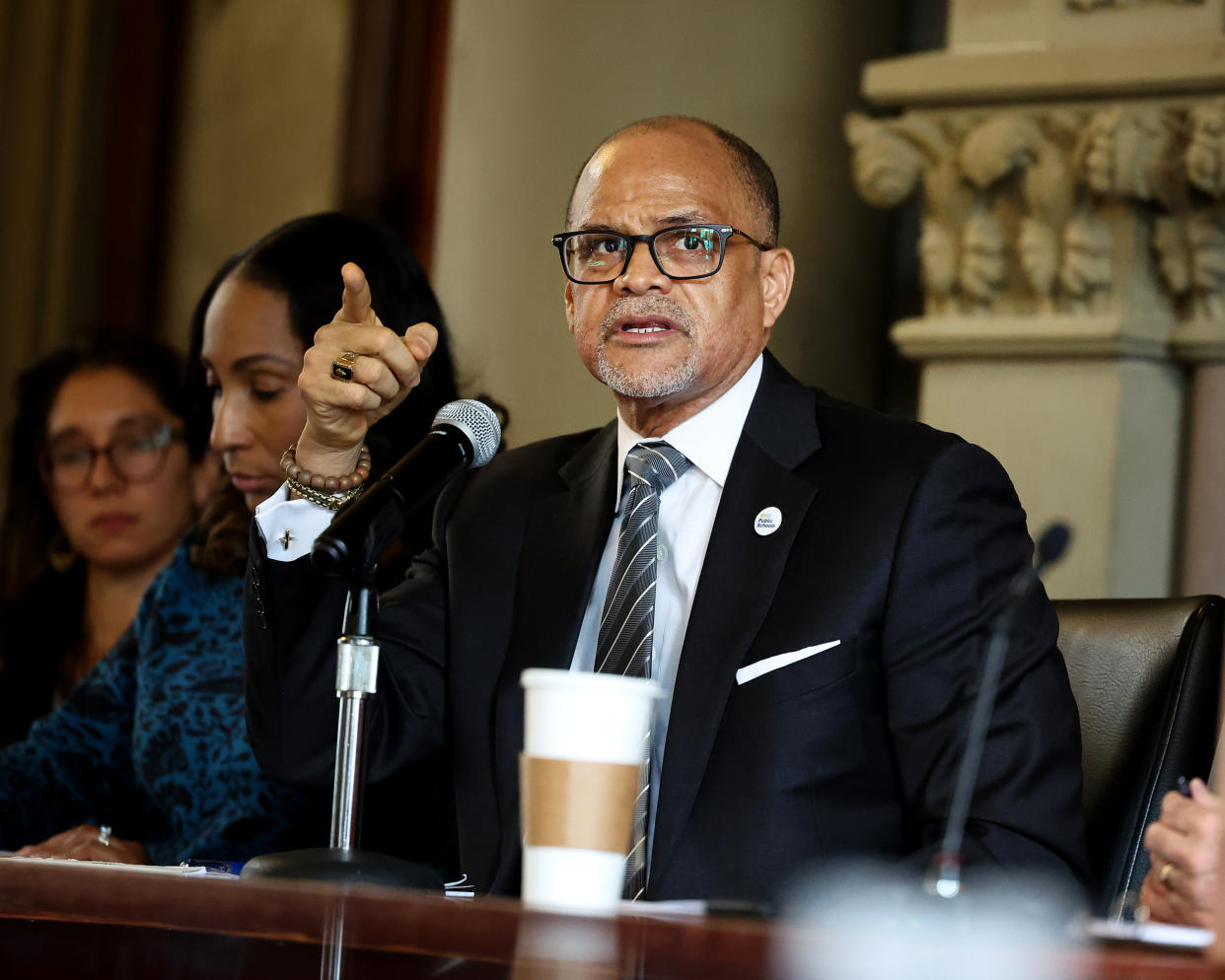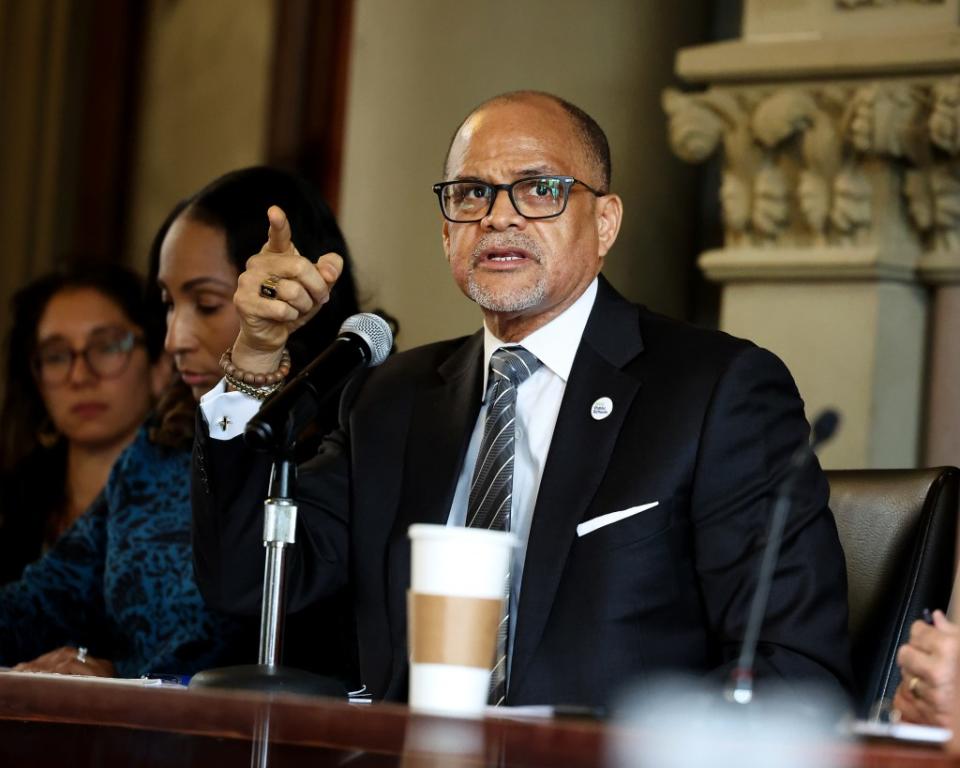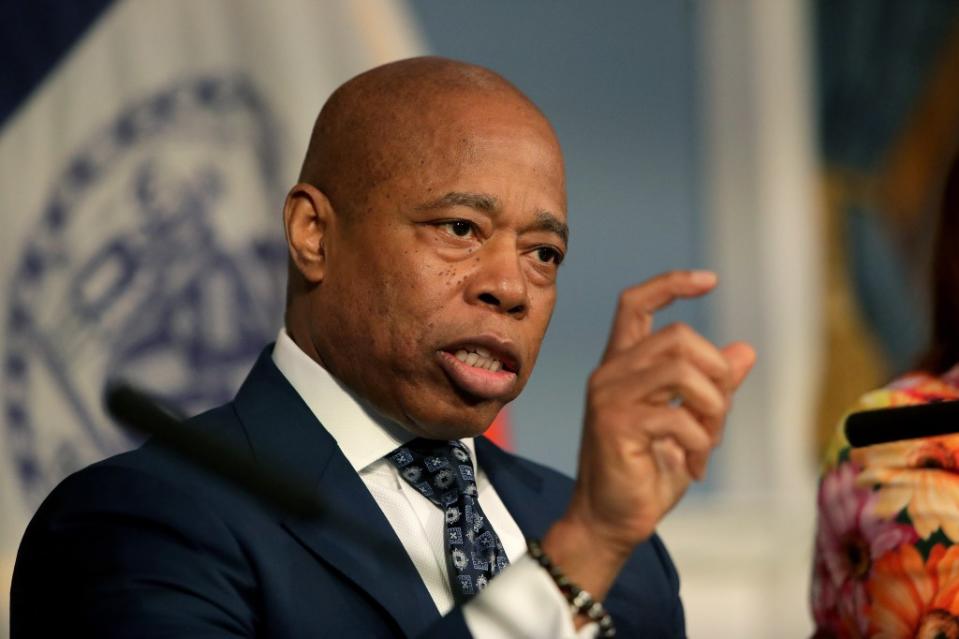NYC DOE Chancellor David Banks has ‘no interest’ in keeping job without mayoral control over public schools

- Oops!Something went wrong.Please try again later.
- Oops!Something went wrong.Please try again later.
New York City Department of Education boss David Banks declared Thursday he has “no interest” in keeping his job if Mayor Eric Adams doesn’t have the power to oversee local public schools.
“I have no interest in serving as the chancellor in a system where you don’t really have the authority to make real decisions,” the schools chancellor said during a City Hall briefing.
“I have no interest in that whatsoever. I’m gonna be very clear about that.”
His reaction came just days after Albany pols dealt Adams a blow in his fight to retain mayoral control of the nation’s largest school system by leaving out an extension of the mandate — which is set to expire June 30 — from their budget proposals.

Banks doubled down Thursday on the need for Hizzoner to remain in charge, arguing that without mayoral control, there would be no one to regulate whether schools are complying with the new state-mandated class size law.
“We’ve got advocates in the state legislature, legislators who are fighting for class size, right? We now have this class size law. They’re promoting it. They believe that [if] we have small class sizes that kids have a better chance of being successful,” Banks said.
“How do you implement a class size law unless you know who’s responsible for leading that work? I don’t know how you do that? If they don’t do an extension of this law by June, the system naturally will revert back to what it was before.”
The DOE boss argued that Big Apple parents deserved to know exactly who was in charge of their kids’ education — and to be able to hold that person accountable.
“You can engage in rhetorical flourishes all you want, but at the end of the day, taxpayers, parents in New York City, need to know there’s somebody they can go to who is in charge of the system and can direct what is happening,” he said.
“We would be taking 10 steps backwards if we said, ‘The mayor is no longer in charge.'”

If mayoral control were to be rescinded by state lawmakers, Banks said, control of schools would essentially fall to Community Education Councils — a move he suggested could potentially lead to corruption.
“I grew up in a system where it was spread out across the city and I knew personally people who had to pay for their positions to become a principal,” he said, pointing to a time before Mayor Mike Bloomberg when mayoral control was non-existent in the city.
“You didn’t have a shot of being a principal in a particular district unless they had a community board you were close to or you were prepared to pay money for a four-year position.”
A lack of mayoral control would be playing politics with kids’ education, Banks argued.
“On the Panel for Educational Policy, when the mayor and I decide on the course we think we should take, if you don’t have the majority of the votes, you don’t have the power,” he said.
“Now you’d have to negotiate for every vote. You’re trying to do the right thing for kids, but every single vote now has to be negotiated. That’s politics. I do not think that that will be good for the school system.”
“I certainly did not sign up for that,” Banks added.
Gov. Kathy Hochul has already backed Adams’ push to retain control by floating a four-year extension of the current system in her budget proposal earlier this year.
But opponents, including the United Federation of Teachers, have pointed to Adams’ record of school budget cuts and opposition to the class mandate law as reasons why he shouldn’t solely be in charge of making decisions.
“Members of the Legislature have serious questions about mayoral control in its current form, particularly given the city’s confusing budget policy and its resistance to implementing a major legislative and parental goal — reducing class sizes to the state average,” a UFT rep said Thursday in the wake of Banks’ comments.
The absence of mayoral control in the spending proposals earlier this week cast doubt on whether the provision would be included in the upcoming final budget deal.
Lawmakers, though, could still pass an extension outside the budget — like they did last time mayoral control expired in 2022.
State Senator John Liu (D-Queens), chair of the education committee, said the decision on how best to govern schools would be informed by an upcoming state Education Department report.
“I don’t begrudge the chancellor for fighting for mayoral control, but after 20 years and three different mayors, the largest school system in the country deserves a thorough examination of best practices in school governance,” he told The Post, adding it is “not a verdict on the current administration.”

